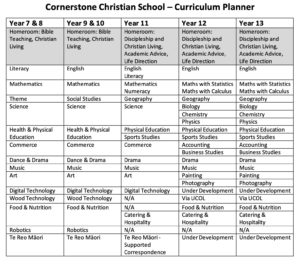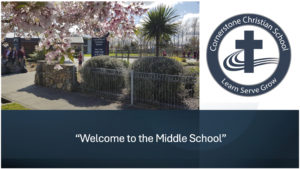CCS Middle School Philosophy
A Focus on Purpose
“At the core of our CCS Middle School philosophy is the nurturing of growth in faith, academics, the arts, culture, technology, health, and sports. We create an environment where students can uncover their hidden talents, explore their paths, ask important questions, learn the tenets of our faith, and navigate early adolescence with support and encouragement.
We value leadership and service, implementing structures that help students develop their leadership skills, recognise their impact in the world, and find ways to foster positive change.
At CCS Middle School, we constantly reflect, refine, and evolve while remaining anchored in the traditions of our faith and school that serve us well.
In partnership with our parents, CCS students learn to appreciate that rewards come from effort and that true success is achieved through perseverance—trying, failing, and trying again. They discover that God has bestowed each individual with a purpose, which begins with becoming the best version of themselves as created by Him.”
James Rose
Deputy Principal
Leadership
Assistant Principal: Ian Groube
Team Leader in Year 7&8: Mrs Tarryn Rose
Team Leader in Year 9&10: Mrs Karina Anderson
Academics and Module Programme
Middle students continue their progress through the National Curriculum from Primary School.
In Years 7 and 8, the focus is on core skill development in Reading, Writing, Mathematics, and Social Studies within Homerooms. Science is taught by specialist teachers in our labs. Other subjects are included in our Middle School Modules programme.
In Year 9, homeroom teachers instruct their classes in at least two subjects, along with the homeroom based Christian Living programme.
In Year 10, homeroom teachers teach one subject in addition to the homeroom based Christian Living programme.
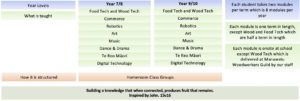
Monitored for progress
Students are regularly monitored for progress in the Middle School. This monitoring includes:
- Weekly ‘Learning Engagement’ and ‘Learning Attitude’ tracking leading to Motivation Awards in school reports.
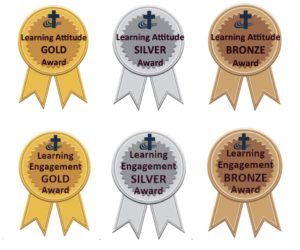
- Termly School Reports.
- Three Parent/Teacher conferences each year – Term 1,2, and 3.
- E-asttle [diagnostic] testing in Reading, Writing, and Mathematics at key points in the year. This information contributes to a student’s OTJ’s [Overall Teacher Judgement’s] in the reports above against the relevant target curriculum levels.
- Use of the Centre for Assessment Monitoring [CAM] tools with Canterbury University in Year 7 and Year 9 for internal diagnostic work only.
One, two and four above are available on the Secondary Parent Portal for review along with:
-
- Daily student notices.
- School calendar.
- PDF files of current and past school reports.
- Timetable and attendance information.
- Current contact details (including requests for changes)
- Pastoral content (in limited detail)
- Recognition tracking
Preparation for the National Common Assessment Activities [CAAs] in Year 10
In Years 9 and 10, teaching and learning programs focus on preparing students for the National Common Assessment Activities (CAAs), which are taken from Year 10. The CAAs are co-requisites for NCEA and ensure that students meet the required levels in Reading, Writing, and Numeracy necessary for NCEA starting in Year 11. The NCEA curriculum for Years 11 to 13 operates at Level 6 of the national curriculum and above. CCS continues to offer the full Level 1 NCEA qualification as preparation for Levels 2 and 3. For students who do not achieve the CAAs or are operating below curriculum Level 6 in the Senior School, we provide an alternative NZQA qualification through the SPEC system, which is offered in The Learning Centre (TLC).
Character Development and Puberty
Puberty can be a difficult time to navigate. Year 7’s and 8’s going through these changes can present as different people at times – with parents left wondering ‘what happened to the child they knew in Year 6’. Our experienced Middle School teachers are well able to support parents as they navigate this changing time with their children.
By focusing on character development, our students can learn to apply themselves to the best of their capabilities across multiple areas including their academics, service, sport, music, the arts, and culture.
Our Pastoral Team our able to provide additional support for students and their families who are finding puberty a particularly difficult time to navigate – especially where the child is the oldest in the family and this is their first journey through puberty together.
Middle School Christian Educational Philosophy
Underpinning our educational endeavours are four key Christian foundations or pillars.
- Christ is our Saviour.
- We are the ‘body of Christ’.
- We have a purposeful Christian culture.
- We are all made in His image.
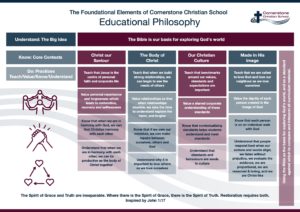
The Narratives and Verse we live by….
Within the classroom, teachers weave biblical concepts into their teaching through the lens of narrative and verse.
‘Narrative’, or story telling, is God’s way of helping us and others see His hand in our lives.
The ‘verse’ is His Word and is the standard by which we can interpret the curriculum and the wider world around us.
Homeroom-based Christian Living Programme and Pastoral Care
All students in Years 7-10 are part of a Homeroom, which offers initial pastoral care and Christian living development.
Homeroom sessions are scheduled three times a week for 30 minutes, focusing on the Christian aspects of Learning, Serving, and Growing in God. In Years 7 and 8, Homeroom Teachers often incorporate this time into their broader programs to facilitate discussions about learning through a Christian worldview.
The following chart models how this can be achieved.
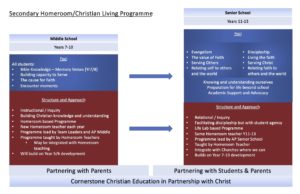
Timetable
The graphic below displays the individual period-by-period timetable for the Middle School and Senior School. In Years 7 and 8, periods are often combined into ‘homeroom’ time for theme studies and other cross-curricular activities.
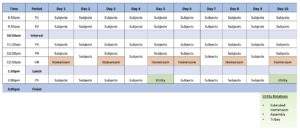
Anti Bully Programmes
In Year 7&8, students are given agency to report any bullying behaviour through the ‘Bully Box’ reporting system. This system levels the playing field by empowering those who may see themselves as victims of bullying to ‘take some action’ against the protagonist. Reports are ‘mapped’ so we can see trends developing and get to the source of any concerns as quickly as possible.
Overall Secondary Curriculum Map – Combined Middle School and Senior School
